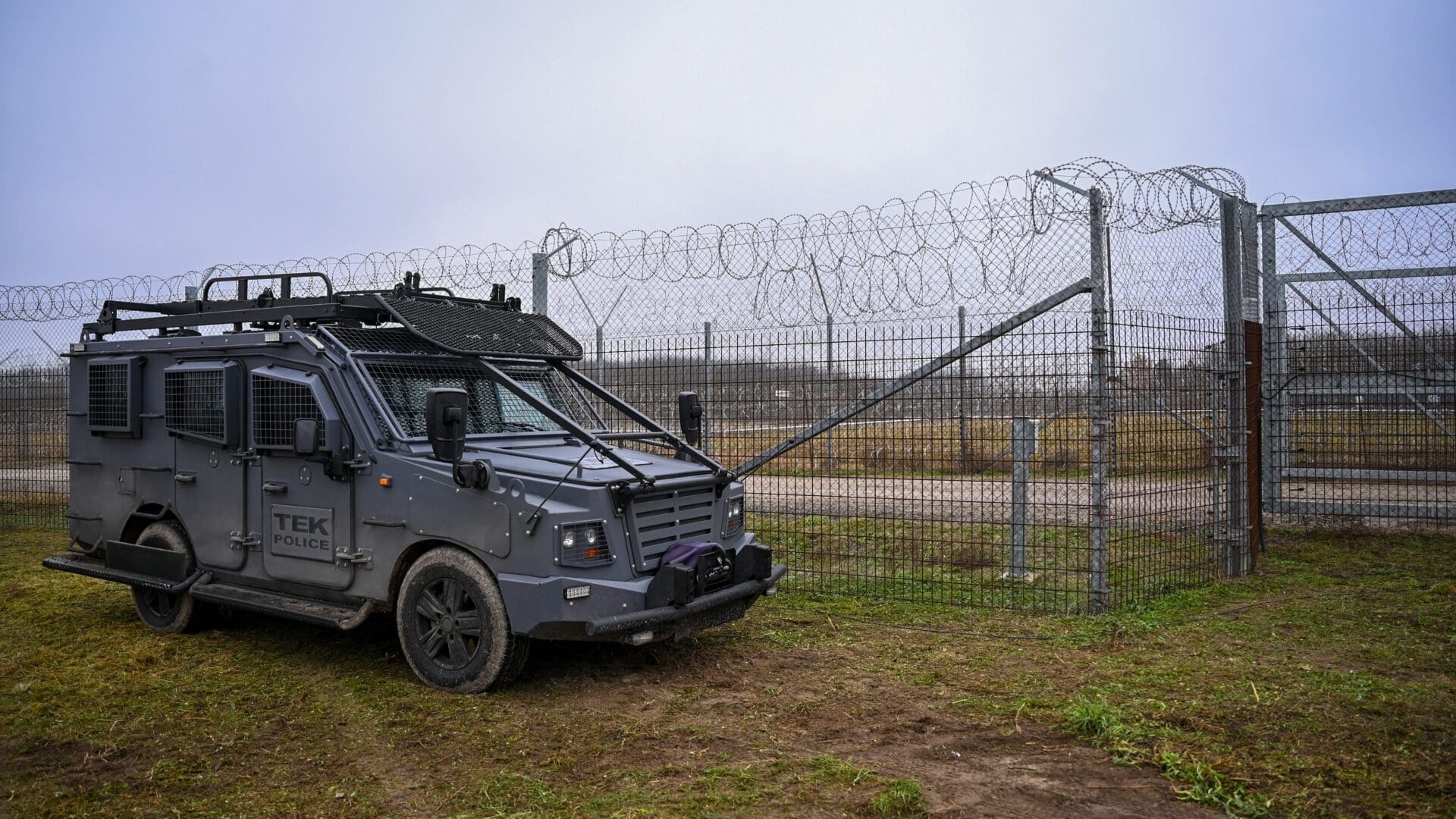Attempts of entering Hungary illegally along the Hungarian-Serbian border are becoming extraordinarily intense.
The Prime Minister’s Chief Security Advisor György Bakondi said on Tuesday that groups of 140–180 individuals have been attempting to cross the border fence using ladders in the areas of Ásotthalom and Mórahalom. Additionally, human traffickers are also active, ready to move those who towards the West those who manage to cross. ‘The police and border patrol units are engaged in a proper combat,’ the Chief Security Advisor reported.
He highlighted that illegal migrants regularly damage the technical barriers, attack police vehicles, and even police officers with wooden sticks, stones, and metal projectiles fired from slingshots. Seven officers have already been injured by them this year.
Bakondi drew attention to the fact that ‘weapons have appeared’ in Serbia near the border, and ‘the public security situation has become critical’ in settlements near the border. Initially, criminal gangs fought against each other in uninhabited parts of the area, using knives, pistols, and submachine guns, but now they have also appeared in the settlements where they engage in shootings.
The Chief Security Advisor highlighted
a recent grenade attack on the house of an individual who frequently criticised illegal migration
on social media. This is noteworthy because it is the first case since 2015 that criminal gangs have intentionally targeted civilians. He then expressed the opinion that ‘this signals the arrival of new, dangerous times.’
The good news is that Serbia is actively participating in border control tasks in line with its European integration efforts. Serbia cooperates with the Hungarian and Austrian authorities, often deploying special police units in the border region.
Bakondi labelled the European Union’s expectation of providing open camps for illegal migrants, from which migrants can freely leave, as demoralising for law enforcement forces and the public. The Chief Security Advisor believes that the European Parliament elections next year could bring about a change concerning the tackling of migration. ‘A parliamentary majority and European Commission may emerge that deals with illegal migration in accordance with the danger and security risks it poses,’ he said.
Hungary participates in a number of cooperative efforts in the fight for European security.
Hungarian police forces are present in the Hungarian-Austrian-Serbian cooperation framework at the Serbian-North Macedonian border, and a number of officers are also involved in the guarding of the North Macedonian-Greek border and other Frontex missions.
Between January and March of this year, the Mediterranean area of Europe witnessed the arrival of over 36,000 migrants, nearly twice the figure recorded during the same timeframe in 2022. This data, sourced from the United Nations‘ Refugee Agency, UNHCR, marks the highest count since the peak of the refugee crisis in 2015.
On 2 April 2020, in response to nation-state measures taken after the migrant crisis that originated in 2014 and climaxed in 2015, the European Union‘s Court of Justice ruled that member states cannot independently control their borders without prior authorisation from the EU. In addition, mandatory migration quotas were introduced, but several CEE countries, including Hungary and Poland, have refused to admit the number of asylum seekers allocated to them, and many old EU Member States have in practice also not fulfilled their obligations in this regard, although they are on board on paper.
At the peak of the migration crisis in 2015, around one million illegal immigrants entered Europe
through the so-called Western Balkan route, which also includes Serbia. According to official data, the most popular route for illegal immigration is still the Western Balkan land route.
Since the Serbian authorities do not deport those apprehended, but rather transport them from the northern to the southern border of the country, migrants often set out on their journey again and a few days later reach the Hungarian border, where they keep attempting to enter the European Union, not refraining from violence against border guards.
Related articles:
Hungarian Conservative/kormany.hu/MTI








